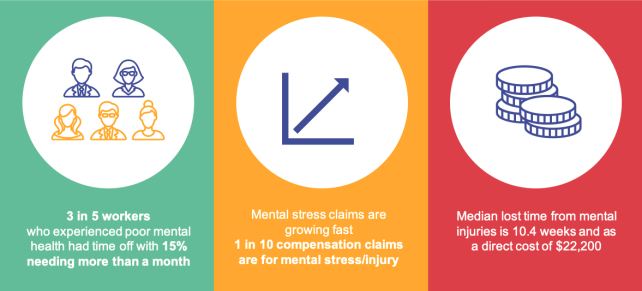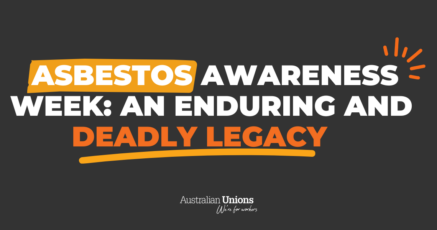The stress of the Covid-19 pandemic and revelations of endemic sexual harassment in Australia’s workplaces have put workers’ mental health in the spotlight. The problem is widespread, dangerous, and urgent.
But it’s not impossible. This month, the new federal industrial relations minister has a chance to do something about it.
Disruptions during the Covid-19 pandemic revealed how Australian workplaces are exposing workers to mental harm. In 2020, 49 per cent of home workers responding to an ACTU survey reported mental health issues, including stress, anxiety, depression and self-harm. 26 per cent said they did not feel supported by their employer. Three per cent reported online bullying or harassment, and two per cent said they were exposed to family or domestic violence.
Sexual harassment has been in the news and is not going away. In April 2020, a Community and Public Sector Union report found that nearly one in six public servants experienced sexual harassment. However, only one-third of these incidents were reported, with many workers fearing that their claims would not be impartially investigated.
Bad colleagues and the blurred line between personal lives and our workplaces are only part of the issue. Isolation, stress, demanding jobs, unsafe workplaces and a lack of support all harm employees’ mental health.
According to Mind Your Head, 92 per cent of mental health condition claims are attributed to work-related mental stress. In 2019, the Productivity Commission estimated that mental health impacts cost Australian workplaces $17 billion every year.

Reforms to Australia’s workplace laws to protect workers’ mental health have been on the table for a long time. In 2019, Marie Boland, former Executive Director of SafeWork SA, delivered her review of Australia’s Work Health and Safety Laws. The Boland Report recommended that Australia’s WHS Laws should be changed to include psychosocial hazard regulations.
In 2019, the Respect@Work report into sexual harassment in Australian workplaces found that Australian laws are not keeping workers safe. Sex Discrimination Commissioner, Kate Jenkins made 55 recommendations for reform, including strengthening Work Health and Safety Laws to make employers ensure workplaces safe from sexual harassment and gendered violence.
Put simply, this means treating hazards to mental health as seriously as we treat physical hazards in the workplace, and putting in safeguards to ensure workers are protected, rather than only responding—or, not responding, as is often the case—when a problem arises.
On 20 May, Cash will meet with state and territory Work Health and Safety Ministers to vote on their support for these reforms. Cash’s vote is likely to decide the outcome of the meeting.
This week, the ACTU joined mental health advocacy groups and academics in calling on the ministers to vote in support of the reforms. ACTU Assistant Secretary Liam O’Brien said the reforms were “essential to making Australian workplaces safer”.
“Australia is one of the only developed nations in the world to not have equal protections for physical and psychological health and safety,” O’Brien said.
“These changes have been recommended by two extensive reviews ordered by government, and now Minister Cash has the opportunity to ensure they will become law in every workplace”.







SHARE:
Will Minister Cash vote to protect workers’ mental health?